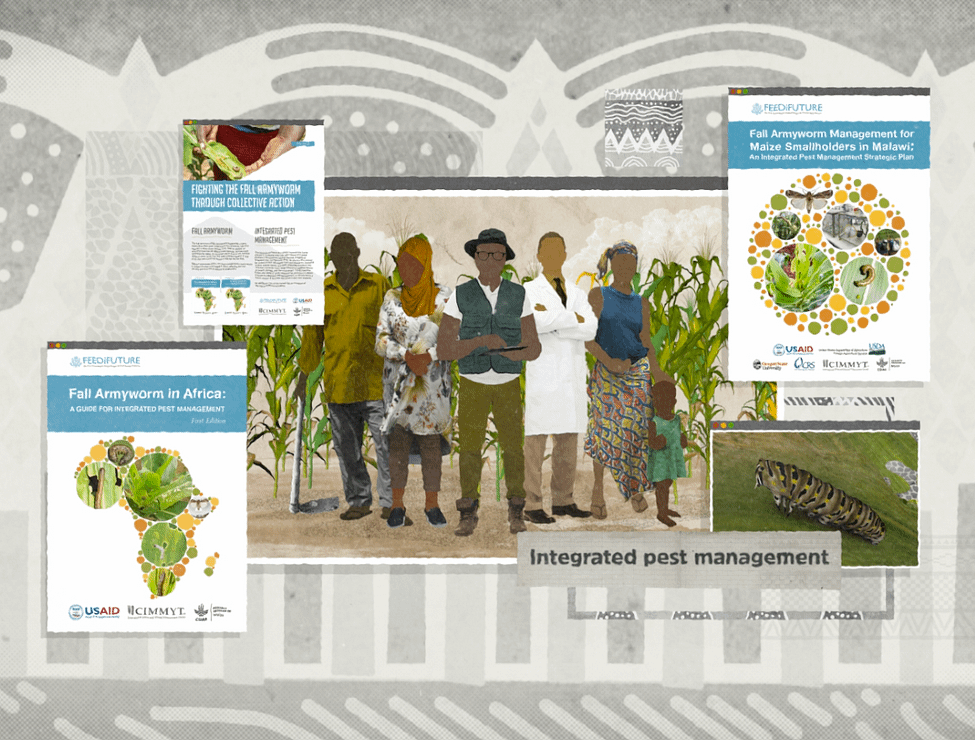
Waging war against the fall armyworm

This is an edited version of an article by Rodrigo Ordóñez and Silvia Rico that was originally published on the website of the International Maize and Wheat Improvement Center (CIMMYT).
Fall armyworm is an invasive pest that eats more than 80 different crops, but has a particular preference for maize.
It is native to the Americas. It was first reported in Africa in 2016, and quickly spread throughout the continent. It reached India in 2018. It has since been reported in many other countries across Asia and the Pacific, and it reached Australia in 2020.
Millions of families in these regions are highly dependent on maize for their income and their livelihoods. If the fall armyworm keeps spreading, it will have disastrous consequences for them.
Scientists at CIMMYT, the lead center for the CGIAR Research Program on Maize, have been working hard to find solutions to help farmers fight fall armyworm. Researchers have developed manuals for farmers, with guidelines on how to manage this pest. They have also formed an international research consortium, where experts from diverse institutions are sharing knowledge and best practices. Consortium members share updates on progress in finding new ways to tackle this global challenge. Scientists are now working on developing new maize varieties that are resistant to fall armyworm.
Fall armyworm can’t be eradicated — it is here to stay. CIMMYT and its partners worldwide will continue to work on this complex challenge, so millions of smallholder farmers can protect their crops and feed their families.
For more information on the fall armyworm and CIMMYT’s work, please visit www.cimmyt.org/fallarmyworm.
